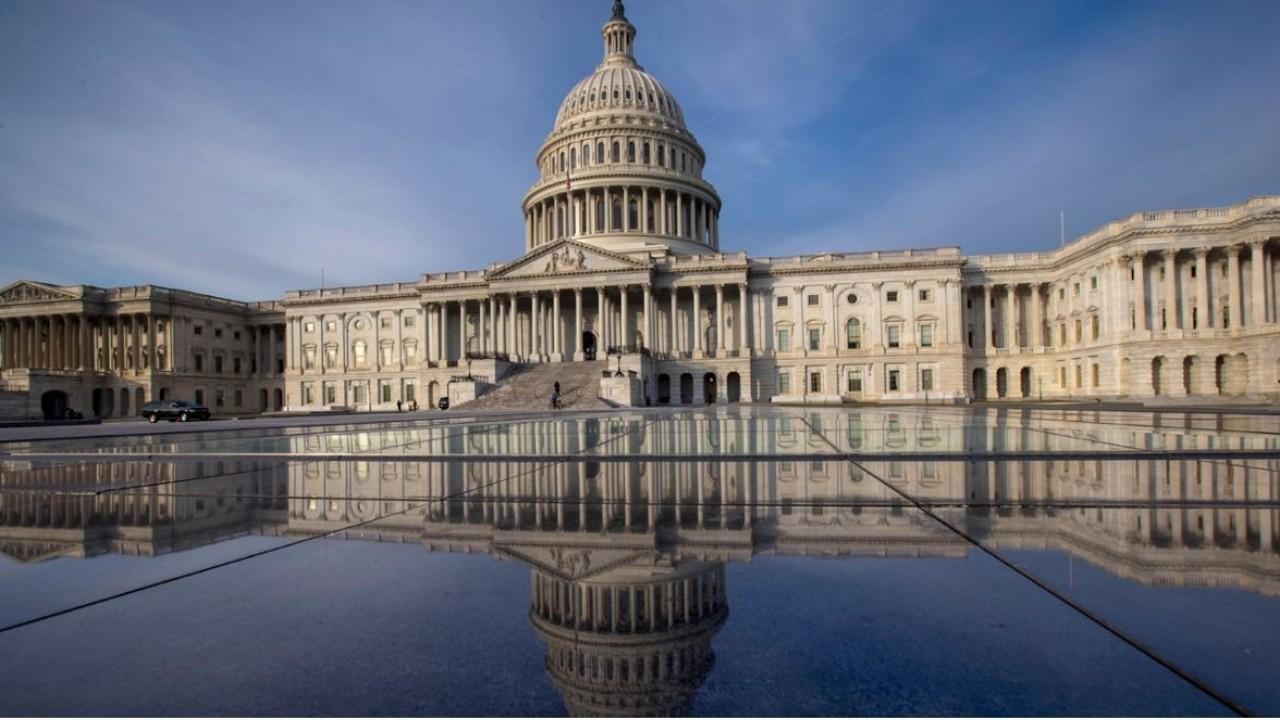US budget deficit hit record-shattering $864B in June
Previous one-month record for the budget deficit was $234B in February 2019
The U.S. budget deficit soared to a record $864 billion in June, as federal revenues dried up and spending surged to help offset the economic pain of the coronavirus pandemic, according to a new report from the Treasury Department.
The gap between what the government spent and what it collected was more than 107 times what it was last June. Before the pandemic, the previous one-month record for the budget deficit was $234 billion in February 2019.
One reason for the decline in receipts was the administration's decision to extend the tax filing deadline from April 15 to July 15. That could entail a considerable increase in receipts next month.
TRUMP BACKS SECOND STIMULUS CHECK, BUT SOME DEMOCRATS, REPUBLICANS WEARY OF ANOTHER PAYMENT
“We would expect a significant portion of that to be caught up after July," a senior Treasury official told reporters during a call.
Federal spending rose to more than $1.1 trillion in June, a 223 percent increase from last year, because of the massive government response to the virus outbreak and the related economic lockdown.
The unprecedented level of spending pushed the nation's deficit for the first nine months of the fiscal year to $2.7 trillion.
Nearly half of the outlays in June stemmed from the Paycheck Protection Program, the $670 billion rescue fund designed to keep small businesses afloat and avert mass layoffs. It accounted for almost half of the government's spending -- roughly $511 billion.
WHAT WILL THE NEXT VIRUS RELIEF BILL LOOK LIKE? CONGRESS MULLS STIMULUS CHECKS, BACK-TO-WORK BONUSES
The deficit for fiscal 2020 is expected to hit $3.8 trillion, a record, according to a projection from the Committee for a Responsible Federal Budget.
The current record for a fiscal year deficit is $1.41 trillion, set in 2009.
The report comes as Congress and the Trump administration prepare to intensify negotiations on another round of virus-related aid once lawmakers return to Washington from their two-week Fourth of July break.
Some administration officials hope to limit the fourth relief package's price tag at no more than $1 trillion over concerns that they could otherwise risk losing pivotal support from fiscally conservative Senate Republicans who are starting to balk at the unprecedented debt and spending level.
EXTRA $600 IN UNEMPLOYMENT BENEFITS ENDS NEXT MONTH AS MILLIONS OF AMERICANS REMAIN OUT OF WORK
"Hopefully we’ll learn from our first three bills in terms of what works and what doesn’t," Sen. John Kennedy, R-La., said last week. "The undercurrent here, at least on my side of the aisle, is the fact that we owe $3 trillion and climbing. This is real debt. And that doesn’t even include the $3 trillion we added to Federal Reserve balance sheet."
So far, Congress has passed three massive stimulus packages totaling nearly $3 trillion to help American workers and businesses survive the worst downturn since the Great Depression.
Measures that may be included in the next relief package include a second, more-targeted stimulus check, a back-to-work bonus, a payroll tax cut and liability protections for businesses reopening during the crisis.




















